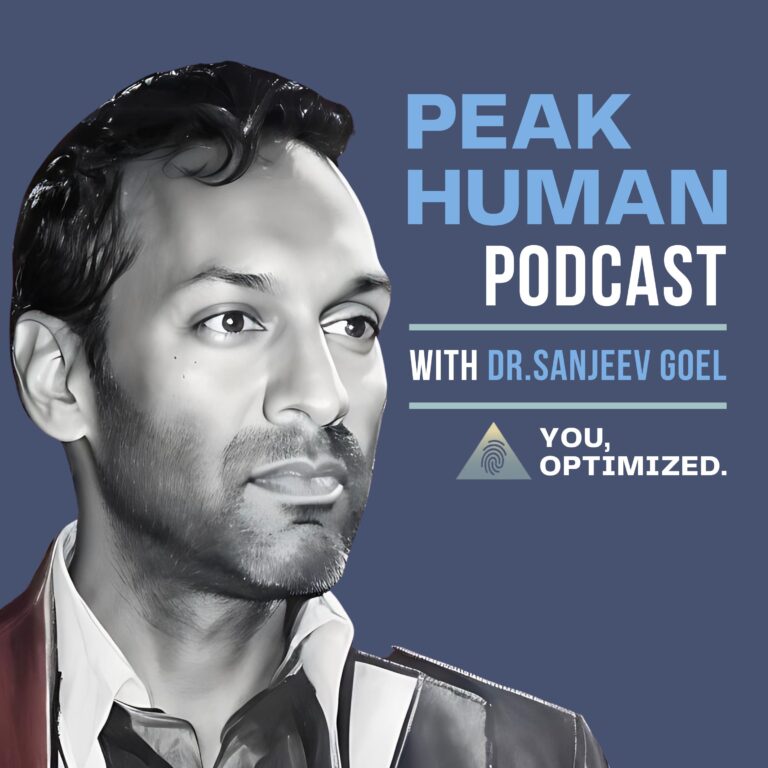Overview
Alcoholic beverages are consumed and enjoyed around the world. Each year, the global volume of consumed alcohol can reach over 35 million liters. This massive alcohol intake implies a 70 percent increase compared to only a few decades ago.
And while the fact that alcohol has numerous adverse effects on the human body is widely acknowledged, little is known about its impact on muscle growth and fitness. In particular, systemic complications targeting the muscles due to alcohol consumption can significantly impede the progress of those dedicated to improving their physique.
This article elucidates the link between alcohol and muscles and a possible deterioration in fitness. Also, how moderate alcohol use and excessive abuse cause different outcomes is explained, and why the impact of long-term alcoholism is irreversible.
Elucidating the Destructive Effects of Alcohol on Fitness
Alcohol Nutritional Facts and Metabolism
How Many Calories Does Alcohol Contain?
Alcohol is an extremely concentrated source of calories, containing seven per gram. It has two fewer calories per gram than pure fat. Meanwhile, protein and carbohydrates have only four calories per gram. As a result, a pint of beer (473ml) can contain the same calories as a slice of pizza or half of a full Western breakfast.
However, despite being a rich source of calories, alcohol has no nutritional value. It is not a carb, fat, or protein, and it does not benefit our bodies in any way. Moreover, the human body cannot store alcohol. So our body must make it a priority to get rid of it. Therefore, all other procedures that should be occurring, like nutrient absorption, are disrupted.
Alcohol Metabolism Disrupts Food Absorption
When a person consumes alcohol, 20 percent is absorbed in the stomach; the other 80 percent in the small intestine. Because the human body does not benefit from alcohol in terms of nutrition, and because alcohol molecules are very tiny, it circulates quickly through the bloodstream and to the organs.
When the body senses alcohol in its system, it switches on the metabolic process to eliminate it. Alcohol then becomes the priority, above all other nutritional functions. As a result, food absorption slows down, and an accumulation of alcohol causes intoxication.
If consumed excessively, alcohol may cause irreversible damage to almost every organ. Given that the organs responsible for energy and nutrient metabolism, such as the liver and stomach, are affected to the greatest extent, individuals building up their physique may face challenges in maintaining their momentum. So how does alcohol kill gains?
The Effects of Alcohol Consumption on Muscles
Alcohol Weakens Muscle Strength

Many people may attribute their frailty to the hangover symptoms after consuming alcohol. However, from the difficulty in maintaining balance to the struggle in achieving everyday physically-demanding tasks, alcohol affects both the brain and the muscles.
In a study on alcohol consumption and muscle strength, scientists found that a high alcohol intake was positively associated with a more significant loss of muscle strength. This finding was after two years of chronic use in both men and women.
Scientists suggest that alcohol is detrimental to muscle strength due to its effects on protein homeostasis, causing a loss of muscle mass. And because the size of a muscle influences its power, this can be the primary mechanism that explains the association.
Alcohol Prolongs Muscle Recovery
When it comes to workouts, recovery is vital. Whether a person gains dramatically depends on when the muscles are ready for the next training session. In this context, alcohol abuse appears to be an obstruction that blocks recovery.
According to a study on alcohol and recovery, testosterone levels and rates of muscle protein synthesis decrease after resistance exercise. In contrast, cortisol levels increase, suggesting alcohol use during recovery may impair muscular adaptations.
Adaptability is necessary for muscle recovery. It is because the use of oxygen to generate energy improves through a higher adaptation, which slows the onset of muscle fatigue after prolonged training. In other words, more adaptation means less exhaustion.
Alcohol Lowers Protein Synthesis
Protein synthesis is the process by which cells produce proteins. Since nearly every bodily function requires proteins, this process is essential. For example, our bodies cannot produce hormones, enzymes, or even new muscle mass if protein synthesis is not occurring.
A study on alcohol and protein synthesis found that in professional athletes taking alcohol, the rate of protein synthesis reduced by 24 to 37 percent despite optimal post-exercise protein provision. This impaired synthesis means that the body cannot use protein properly even when consumed in amounts effective in building muscles.
The average rate of protein synthesis is about 10 percent per day, meaning only 10 percent of the protein consumed in food turns into muscle protein. So reduced protein synthesis due to alcohol causes people to require even more protein to compensate for the loss.
Alcohol Induces Muscle Diseases
According to a study on alcohol and muscle function, alcohol use disorder may cause muscle-related diseases, like myopathy, at a rate five times higher than cirrhosis. Specifically, liver diseases happen in 1 out of 10 people, while myopathy is 40 to 60 percent.
Scientists suggest that alcohol-induced muscle-related diseases may be attributed to altered nutritional status, reduced protein synthesis, increased protein degradation, and other non-nutritional factors, like inflammation, oxidative stress, mitochondrial dysfunction, impaired muscle regeneration, and accelerated muscle wasting.
However, despite its high prevalence, alcohol-related myopathy frequently goes undetected. Most importantly, myopathy lowers the quality of life for those with alcohol use disorder through health-related issues and long-term physical function impairments.
The Effects of Alcohol Consumption on Fitness
Alcohol Induces Weight Gain
Besides the adverse effects on muscles, alcohol has a bad reputation for causing weight gain. The big problem is alcohol does not only hurt weight with its high-calorie content of seven calories per gram. Instead, alcohol can also stop the body from burning fat and increase appetite, especially for salty and greasy foods.
Alcohol Causes Dehydration
Alcohol causes the body to gain more weight and also lose more water, which is detrimental to fitness. Alcohol is diuretic, meaning it causes the body to move fluid through the renal system (from the kidneys to the bladder) faster than other fluids.
But being a diuretic does not mean alcohol is beneficial for fluid balance. Alcohol is toxic to the body, so it gets eliminated from the system first. If water intake is insufficient during alcohol use, dehydration can happen.
Alcohol Affects Sleep Quality
Alcohol can disrupt a person’s sleep pattern and decrease sleep quality. While many people enjoy a glass of wine before hitting the sack, alcohol’s sedative effects weaken quickly during sleep. So, the body stays in light sleep for longer, which could result in nighttime awakenings and drowsiness on the following day.
Alcohol Demotivates Training
Alcohol can be a covert source of discouragement, making following through on training seem impossible. In addition, a combination of weak recovery, weight gain, dehydration, and sleep disturbances reduces engagement and slows down the progress of the practice.
Imagine waking up in the morning days after a strenuous workout, and your body is still aching and exhausted. What’s worse is that your body shape is not improving as you are gaining more weight than muscles. Also, you always feel thirsty and cannot sleep, making your headache persist to the point it has become chronic.
Would you want to return to the gym or give yourself another day off?
Moderate and Excessive Alcohol Consumption
Excessive drinking can lead to muscle weakness and other effects that hinder gains. However, it is unknown whether a lesser intake has the same impact on the muscles.
A study on alcohol consumption and muscle shows that muscle growth is unaffected by 14 days of moderate alcohol use (20 grams per day). In particular, alcohol use in moderation does not inhibit muscle growth, slow the rate of protein synthesis, or affect the rate of protein degradation accelerated by strength training.
So how much are 20 grams of alcohol per day? A standard pint of 4 percent beer (473ml) contains about 18 grams of alcohol. So to stay within the moderate daily amount of alcohol, both men and women should drink no more than a drink per day.
Short-term and Long-term Alcohol Consumption
Many infrequent drinkers make an excuse that drinking every once in a while will not affect their progress. However, the truth is that both short-term and long-term alcohol abuse can harm muscles.
Yet, there is a difference between occasionally rewarding yourself with a glass of wine and binge drinking. According to a study on alcohol use disorder, the impact of short-term alcohol use is reversible, while long-term drinking leads to permanent damage in all muscle types.
Specifically, while alcohol causes muscle weakness after two years in the study mentioned above, a more extended period of alcohol abuse leads to muscular atrophy or the thinning of muscle mass. In addition, chronic consumption causes a disturbance of cardiac muscle contractility, which is detrimental to blood circulation.
Bottom Line: Alcohol and Exercise Should Not Be a Pair
In conclusion, for those enthusiastic about gaining muscle and improving their physiology, alcohol use should not be paired with training, whether in light, moderate, or heavy intake. While light drinking in the short term does not appear to be a harmful and lasting influence against muscle growth, more research is necessary to determine the exact amount of alcohol that affects muscle in each individual.
References
Parr E. et al. (2014). Alcohol Ingestion Impairs Maximal Post-exercise Rates of Myofibrillar Protein Synthesis Following a Single Bout of Concurrent Training. The Public Library of Science
Steiner, J. (2015). Moderate Alcohol Consumption Does Not Impair Overload-induced Muscle Hypertrophy and Protein Synthesis. The Journal of Physiological Reports.
Simon L. et al. (2017). Alcoholic Myopathy: Pathophysiologic Mechanisms and Clinical Implications. Alcohol Research.
Cui Y. et al. (2019). The Longitudinal Association Between Alcohol Consumption and Muscle Strength: a Population-based Prospective Study. The Journal of Musculoskeletal and Neuronal Interactions.
Lakicevic N. (2019). The Effects of Alcohol Consumption on Recovery Following Resistance Exercise: a Systematic Review. The Journal of Functional Morphology and Kinesiology.
Alleyne, J., Dopico, A. (2021). Alcohol Use Disorders and Their Harmful Effects on the Contractility of Skeletal, Cardiac, and Smooth Muscles. Advances in Drug and Alcohol Research.
If you have questions about alcohol and fitness or any health problems discussed here, connect with us and learn more.
At Peak Human, our team of healthcare professionals helps you reach your ‘peak’ health with a custom whole-person approach. Using the most cutting-edge, science-backed biohacking and aesthetic tools, technologies, and treatments available today, we help you achieve the highest physical/cognitive performance state, leading to an improved overall quality of life.
Don’t hesitate to contact us for questions or to book an appointment. Get personalized support and insight from expert physicians.
UP NEXT:
- Understanding Metabolic Switch and Its Role in Weight Loss
- Benefits of Cryotherapy and Cold-water Immersion on Weight Loss
- 5 Benefits of High-intensity Interval Training







